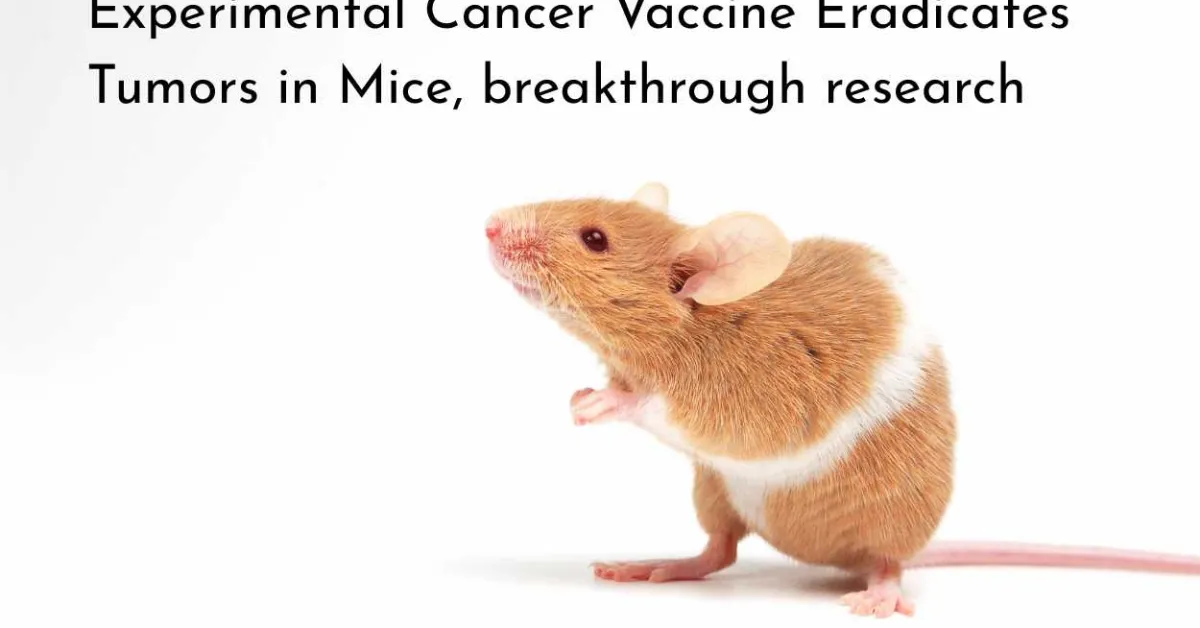A new study from the University of Florida is shedding light on what could become a game-changing approach in cancer treatment: a universal mRNA vaccine designed to awaken the immune system against tumors.
Published this week in Nature Biomedical Engineering, the research team reported that pairing their experimental vaccine with existing cancer immunotherapy drugs unleashed a potent antitumor response in mouse models. Even more surprising, the vaccine achieved this effect without targeting a specific tumor protein, instead broadly stimulating the immune system to react as though it were fighting a viral infection.
A New Way of Thinking About Cancer Vaccines
Most cancer vaccine research has followed one of two strategies: either designing vaccines against tumor markers shared across many patients or developing personalized vaccines tailored to an individual’s tumor.
“This study suggests a third emerging paradigm,” said Duane Mitchell, M.D., Ph.D., director of the UF Clinical and Translational Science Institute and co-author of the paper. “We found that by using a vaccine built simply to trigger a strong immune response, we could still provoke a powerful anticancer effect. That means we might be looking at an off-the-shelf vaccine approach with broad applications.”
Senior author Elias Sayour, M.D., Ph.D., a UF Health pediatric oncologist and the Stop Children’s Cancer/Bonnie R. Freeman Professor for Pediatric Oncology Research, called the results both “unexpected and exciting.”
“This paper shows that even a vaccine not directed at a specific tumor or virus — so long as it is an mRNA vaccine — can produce tumor-specific effects,” Sayour said. “That’s a proof of concept that such vaccines could one day serve as universal cancer vaccines.”
From Personalized Therapy to Universal Potential
Sayour’s team has been pioneering mRNA-based anticancer vaccines for nearly a decade, building on the same lipid nanoparticle delivery system used in COVID-19 vaccines. In a first-in-human trial published last year, they demonstrated that a personalized mRNA vaccine could rapidly reprogram the immune system of patients with glioblastoma, one of the deadliest brain tumors. That trial showed a vigorous immune response in just weeks, giving new hope for patients with few treatment options.
The new study builds on that work but takes a different tack: instead of tailoring the vaccine to each patient’s tumor, the researchers engineered a generalized formulation designed purely to rev up immune activity.
In mouse models of melanoma, combining the vaccine with a PD-1 inhibitor — a widely used class of checkpoint inhibitor drugs — led to strong tumor regression. In models of skin, bone, and brain cancers, the vaccine alone sometimes eliminated tumors entirely.
“What’s remarkable is that by stimulating the immune system in a non-cancer-specific way, dormant T cells started multiplying and actively killing tumor cells,” Sayour explained.
Implications for the Future of Cancer Care
Checkpoint inhibitors such as PD-1 and PD-L1 blockers have transformed cancer care in recent years but are effective in only a fraction of patients. The UF team’s findings suggest that an mRNA vaccine could act as a catalyst, priming tumors to respond to these drugs or, in some cases, making them unnecessary.
“This could represent a universal way of waking up a patient’s own immune system to recognize and fight cancer,” Mitchell said. “If these results translate into humans, it would be profound.”
Next Steps
The research, supported by the National Institutes of Health and several foundations, is moving quickly toward human testing. Sayour and his colleagues are refining their vaccine formulations and preparing for early-phase clinical trials.
“This is not just a new tool against cancer,” Sayour said. “It may be the foundation of a universal cancer vaccine, one that could work in tandem with immunotherapies or, in some cases, as a stand-alone treatment. That’s where we hope to go next.”














